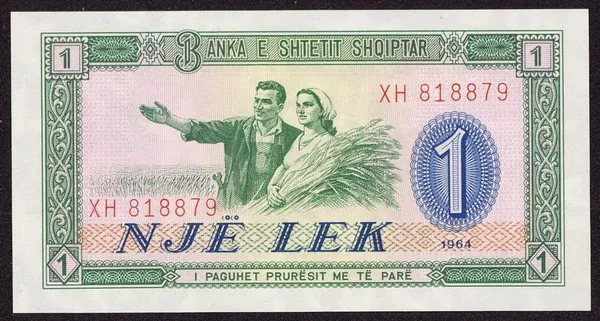As travel enthusiasts and business professionals set their sights on Albania, a fundamental question emerges: What is the best currency to take to Albania? This article aims to provide a comprehensive guide for those planning a visit to this captivating Balkan nation. From understanding the local currency to evaluating the pros and cons of carrying various foreign currencies, let’s explore the factors that influence currency choices and ensure a seamless financial experience during your time in Albania.
Understanding the Albanian Lek:
The official currency of Albania is the lek (ALL), a currency with a rich historical background. Before delving into the best currency choices, it’s essential to grasp the basics of the lek. Introduced in 1926, the lek has undergone various changes and adaptations, ultimately emerging as a symbol of Albania’s economic sovereignty. Governed by the Central Bank of Albania, the lek is used for all official transactions within the country.
Advantages of Using the Albanian Lek:
Widespread Acceptance: The lek is universally accepted across Albania for all types of transactions. From street markets to high-end establishments, using the local currency ensures you won’t encounter any issues when making purchases.
Avoiding Exchange Rate Fluctuations: Carrying the local currency minimizes your exposure to exchange rate fluctuations. This is particularly relevant for extended stays, providing a sense of stability in your financial transactions.
Cultural Experience: Embracing the local currency offers a more immersive cultural experience. Interacting with the lek and understanding its historical significance can enhance your overall understanding of the country.
Foreign Currencies Accepted in Albania:
While the lek is the official currency, Albania is open to various foreign currencies. Among these, the euro (EUR) and the U.S. dollar (USD) are the most widely accepted. Here are some considerations for each:
Euro (EUR):
Ubiquity: The euro is commonly accepted in tourist areas, hotels, and larger cities. Many businesses, especially those catering to international visitors, quote prices in both lek and euros.
Exchange Rate Stability: The euro is a stable currency, and its exchange rates are relatively predictable. This stability can be advantageous for planning and budgeting during your stay.
U.S. Dollar (USD):
Global Recognition: The U.S. dollar is widely recognized and accepted worldwide. In Albania, you’ll find that some businesses, particularly in tourist-heavy areas, readily accept dollars.
Convenience for American Travelers: American travelers may find it convenient to use their home currency, especially if they have limited access to currency exchange services.
Factors Influencing Currency Choice:
Personal Preference: The choice between using the local currency or a foreign currency often boils down to personal preference. Some travelers prefer the convenience of using widely accepted currencies, while others enjoy the authenticity of using the local currency.
Exchange Rates: Monitoring exchange rates is crucial when deciding on the best currency to take. If your home currency offers favorable rates against the lek, it might be advantageous to exchange some money before arriving in Albania.
Accessibility: Consider the ease of obtaining the currency of your choice. While euros and U.S. dollars are readily available in many countries, other currencies may require advance planning.
Transaction Fees: Be mindful of transaction fees associated with currency exchange. Some currencies may incur higher fees, impacting the overall cost-effectiveness of your financial transactions.
Navigating Digital Transactions:
In the era of digital finance, Albania has embraced online and mobile banking. While physical currency remains prevalent, digital transactions are gaining popularity. Credit and debit cards are widely accepted in urban areas and major establishments. However, it’s advisable to carry some cash, especially when venturing into more remote regions where cash transactions are the norm.
Local Insights and Tips:
ATM Accessibility: Albania has a network of ATMs in urban areas, providing convenient access to cash withdrawals. However, it’s advisable to inform your bank about your travel plans to avoid any potential issues with card transactions.
Currency Exchange Services: Currency exchange services are available in airports, banks, and exchange offices throughout Albania. While rates may vary, it’s recommended to use reputable exchange services to ensure fair rates and avoid scams.
Haggling and Cash Transactions: In traditional markets and smaller establishments, cash transactions are prevalent, and haggling is a common practice. Having some local currency on hand can be advantageous in such situations.
See Also: Albanian Lek (ALL) Currency: History, Symbol, Code & Denominations
Conclusion:
In conclusion, the best currency to take to Albania ultimately depends on individual preferences, travel plans, and the specific circumstances of each visitor. While the lek is the official currency and ensures a seamless experience, the widespread acceptance of euros and U.S. dollars provides flexibility for international travelers.
Understanding the dynamics of currency choices, considering exchange rates, and being aware of local practices can enhance your financial experience in Albania. Whether you opt for the familiarity of widely accepted currencies or choose to immerse yourself in the local currency, Albania welcomes you with a diverse array of cultural experiences and a vibrant economic landscape.


